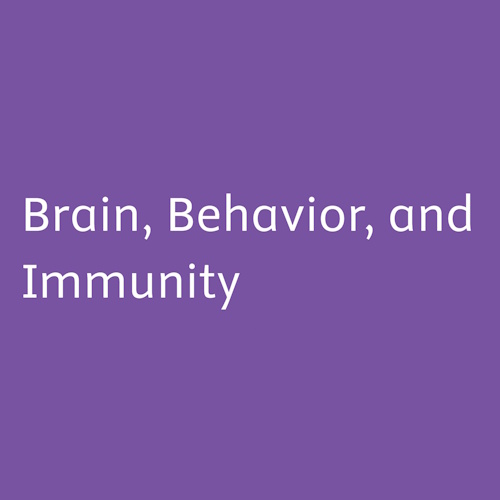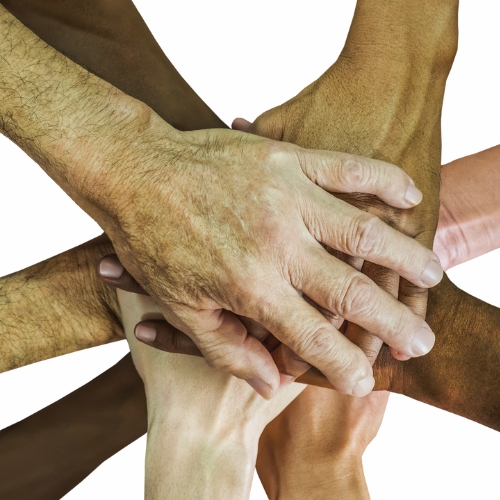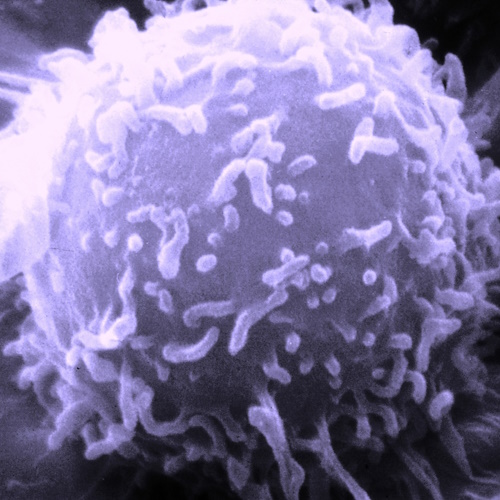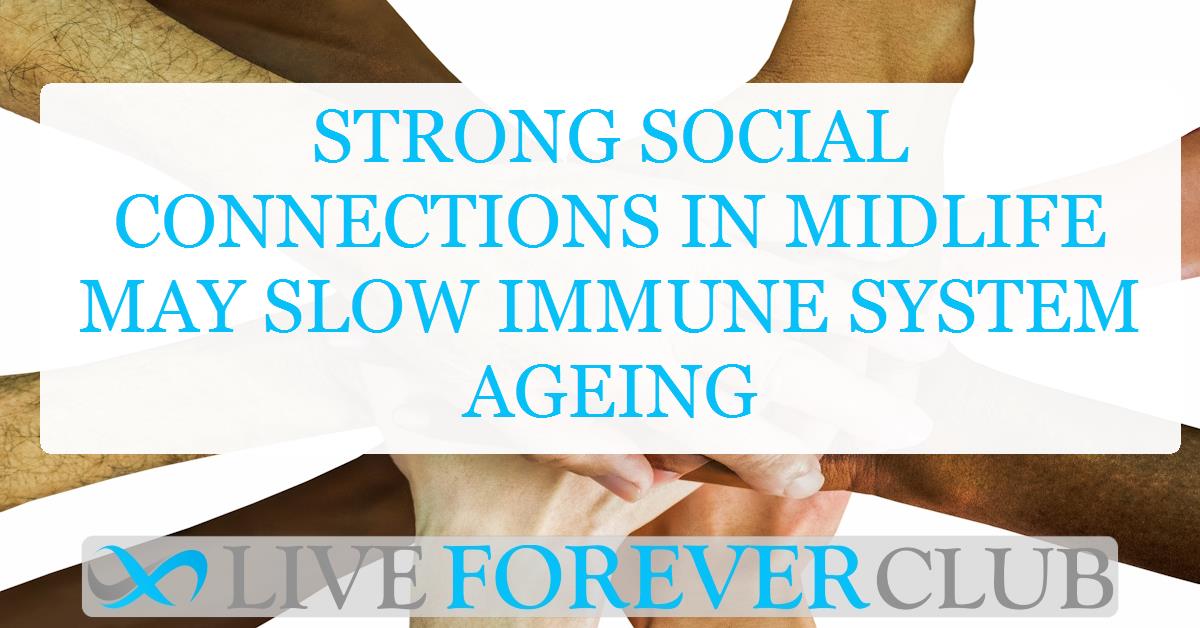As people grow older, the body changes in many ways. Some changes are visible, like gray hair and wrinkles. Others happen inside, hidden from view, but just as important. One such invisible shift is the gradual weakening of the immune system. This natural process, known as immunosenescence, affects how the body fights infection and responds to vaccines. Scientists have long observed these changes in older adults, but a growing body of evidence suggests that immune ageing may begin far earlier—possibly in a person’s 30s or 40s.
What if the way people connect with each other could shape how fast or slow this inner ageing happens? A new study led by researchers from Columbia University and the University of North Carolina at Chapel Hill dives into this idea. The findings suggest that strong social relationships may serve as a buffer against early immune decline.
Looking Inside the Midlife Immune System
The immune system is a network of cells and signals that help the body defend itself. Over time, this system changes. A key shift involves T-cells, a type of white blood cell. Young people have more naïve T-cells, which can respond to new threats. With age, these are replaced by memory T-cells, which remember past infections but cannot fight new ones. As the balance tips, the body becomes more vulnerable to illness.
This process, once thought to start much later in life, appears to begin earlier than expected. In fact, rising chronic disease rates among people in their 30s and 40s point to a decline in immune strength even before midlife. Stress plays a major role here. It weakens the immune system, increases inflammation, and speeds up the ageing process. Alarmingly, young adults today report higher stress levels than older adults, despite being in the so-called prime of life.
How Social Bonds May Influence Immunity
The study used data from a nationally representative sample of American adults aged 33 to 44. Researchers examined social connections alongside immune cell patterns, hoping to understand how daily relationships might relate to biological ageing. They collected blood samples to calculate DNA methylation-based markers of immune ageing and examined several social factors.
Social ties were measured in two ways. One was the Social Network Index, which included data on marital status, friendships, religious participation, and community involvement. The second was the Close Contacts Index, which focused specifically on the number of close friends and how often people saw them face-to-face. Researchers also asked participants about the quality of their relationships with friends, family, and romantic partners.
They focused on three key immune ratios: CD4+ memory to naïve T-cells, CD8+ memory to naïve T-cells, and CD8+ to CD4+ T-cells overall. These ratios serve as signals of how aged the immune system has become. A higher ratio typically indicates a more aged immune profile.
The Power of Close Friendship
Among all the social factors, one pattern stood out clearly. People with more close friends—whom they saw frequently—had less immune ageing, as shown by lower CD4+ memory:naïve ratios. This association remained even after adjusting for differences in race, education, body weight, smoking status, and symptoms of depression.
In contrast, the broader Social Network Index did not show the same protective link once researchers accounted for socioeconomic background. This suggests that the quality and closeness of personal interactions may be more important than simply having a wide variety of social roles. Seeing a good friend regularly might matter more than attending community events or being part of several organizations.
Family Ties Offer Unique Protection
When it came to relationship quality, family bonds had the greatest effect on slowing immune ageing. High-quality family connections remained protective even after adjusting for physical health and lifestyle behaviors. Romantic and friendly relationships also showed benefits, but they were not as strong or consistent as those from family ties.
Interestingly, people who tested positive for cytomegalovirus (CMV)—a common herpesvirus known to drive immune ageing—seemed to benefit even more from close relationships. The virus is widespread and usually harmless, but it accelerates the shift from naïve to memory T-cells. For these individuals, having strong family or friend support appeared to help counterbalance the virus’s harmful effects on the immune system.
Gender Differences in Immune Response
One of the most notable aspects of the study was the difference in results between women and men. Women appeared to gain more immune protection from strong social connections than men. This finding echoes earlier research suggesting that female immune systems are more responsive to emotional and social support. Women may be biologically primed to benefit more from nurturing and receiving care.
However, not all findings followed expected patterns. In some cases, certain social factors were linked with higher CD8+:CD4+ ratios—a sign of advanced immune ageing. This result was unexpected and may reflect the relatively young age of the participants. In older adults, this immune profile is more common, but its meaning in younger populations remains unclear.
Why These Results Matter Now
This research provides a new perspective on ageing and social life. While many studies explore the link between isolation and health in older adults, few have looked at immune ageing before age 50. By focusing on people in early midlife, the study sheds light on a critical period when preventive action may still be highly effective.
What the findings suggest is simple yet powerful: meaningful relationships, especially with family and close friends, may help the body maintain a youthful immune system. This doesn't mean that broader social engagement lacks value, but it does indicate that the most emotionally significant ties could have the strongest biological impact.
What the Study Could Not Confirm
Despite its strengths, the study had some limitations. It was cross-sectional, meaning it captured a snapshot in time. As a result, researchers could not determine whether social ties actually caused slower immune ageing, or if people with healthier immune systems were simply more socially active.
Also, the immune data came from DNA methylation estimates rather than direct cell counts. While newer methods like these offer useful insights, they are still being validated against traditional techniques such as flow cytometry.
Nonetheless, the associations uncovered offer compelling directions for future work. Longitudinal studies could help clarify how social relationships influence immune health over time. Interventions that strengthen supportive bonds—particularly within families—might even delay immune ageing and related illnesses.
A Human Connection to Health
Ageing is often framed as a physical or medical problem. But this research reminds us that ageing is also a social experience. The immune system is not just shaped by genes or pathogens, but by love, friendship, and emotional safety. In early midlife, when pressures often mount from career, caregiving, and personal stress, these relationships may serve as a hidden form of resilience.
Rather than waiting until old age to protect the immune system, people might start much earlier—by caring for their closest ties. In doing so, they may support both emotional well-being and biological health, keeping the immune system stronger for longer.
The study is published in the journal Brain, Behavior, & Immunity - Health. It was led by Farizah I. Rob from Columbia University.







